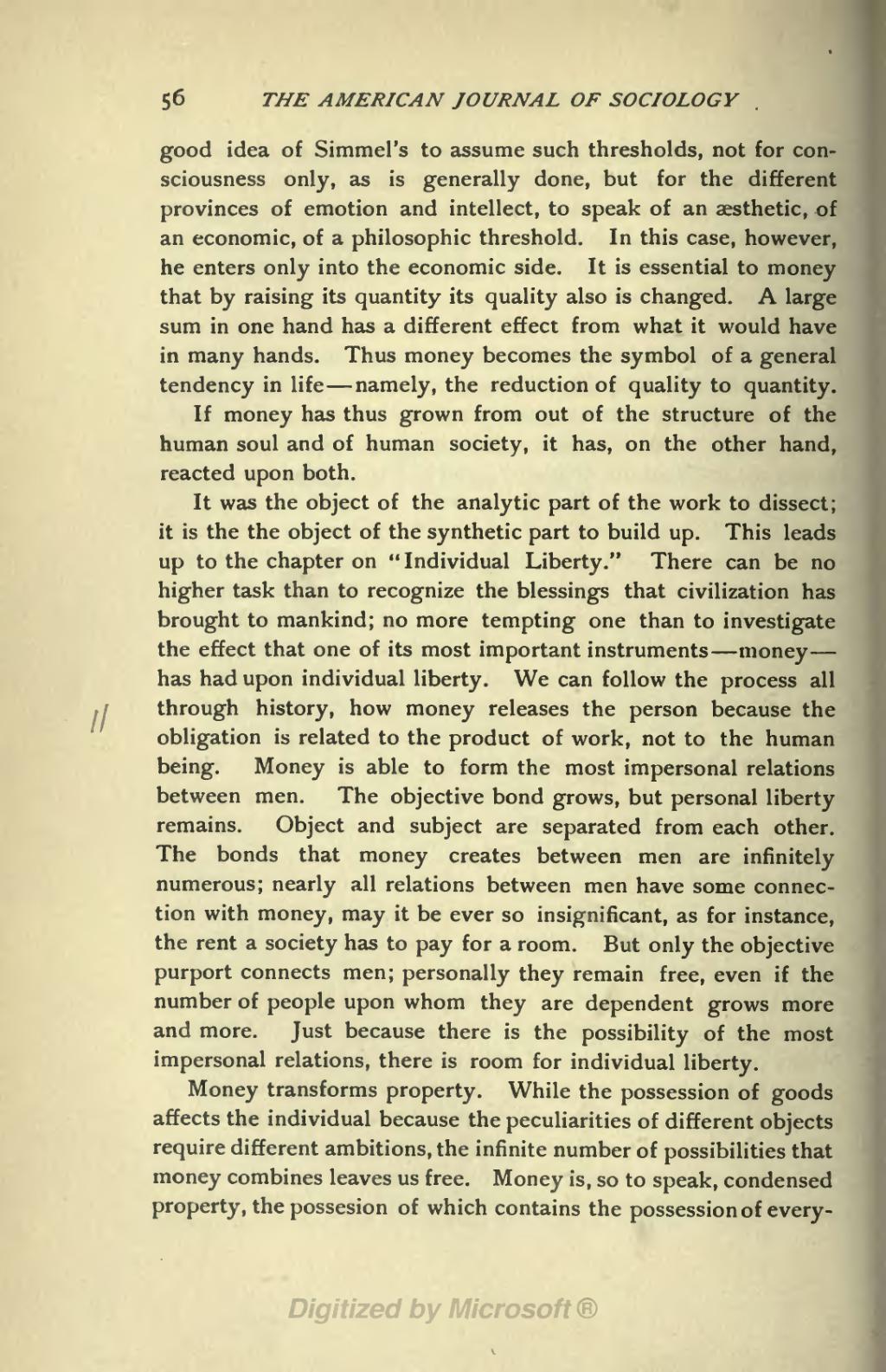good idea of Simmel's to assume such thresholds, not for consciousness only, as is generally done, but for the different provinces of emotion and intellect, to speak of an aesthetic, of an economic, of a philosophic threshold. In this case, however, he enters only into the economic side. It is essential to money that by raising its quantity its quality also is changed. A large sum in one hand has a different effect from what it would have in many hands. Thus money becomes the symbol of a general tendency in life—namely, the reduction of quality to quantity.
If money has thus grown from out of the structure of the human soul and of human society, it has, on the other hand, reacted upon both.
It was the object of the analytic part of the work to dissect; it is the the object of the synthetic part to build up. This leads up to the chapter on "Individual Liberty." There can be no higher task than to recognize the blessings that civilization has brought to mankind; no more tempting one than to investigate the effect that one of its most important instruments—money—has had upon individual liberty. We can follow the process all through history, how money releases the person because the obligation is related to the product of work, not to the human being. Money is able to form the most impersonal relations between men. The objective bond grows, but personal liberty remains. Object and subject are separated from each other. The bonds that money creates between men are infinitely numerous; nearly all relations between men have some connection with money, may it be ever so insignificant, as for instance, the rent a society has to pay for a room. But only the objective purport connects men; personally they remain free, even if the number of people upon whom they are dependent grows more and more. Just because there is the possibility of the most impersonal relations, there is room for individual liberty.
Money transforms property. While the possession of goods affects the individual because the peculiarities of different objects require different ambitions, the infinite number of possibilities that money combines leaves us free. Money is, so to speak, condensed property, the possession of which contains the possession of every-
